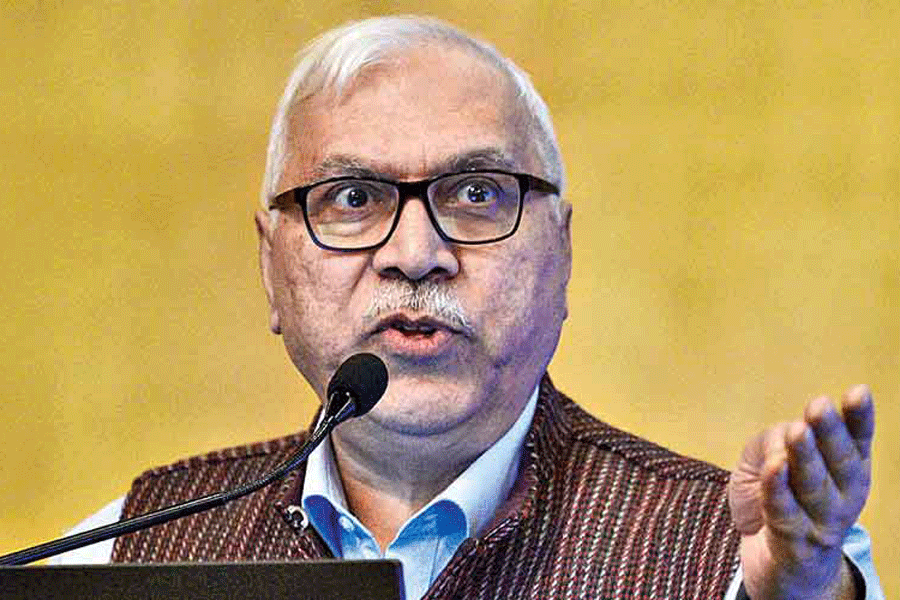Former chief election commissioner S.Y. Quraishi on Sunday described the bill on the appointment of election commissioners as “defeating the purpose of a collegium” and its “downgrading” of the commissioners as “shooting ourselves in the foot”.
Speaking at the same webinar, former Supreme Court judge Madan B. Lokur said the passage of the Chief Election Commissioner and other Election Commissioners (Appointment, Conditions of Service and Term of Office) Bill “can have long-term implications for the functioning of the Supreme Court”.
The bill is listed for discussion and passage in the special session of Parliament that begins on Monday.
Several former chief election commissioners (CECs) plan to write to Prime Minister Narendra Modi not to equate election commissioners to the cabinet secretary.
Since 1991, the CEC, and from 1993 all election commissioners, have been in the pay grade of a Supreme Court judge, who earns the same wages as a cabinet secretary but commands a higher stature in government.
Quraishi and Lokur spoke at a webinar titled “Election Commissioner’s Appointment Bill: Farewell to Free and Fair Elections?” held by the NGOs Satark Nagrik Sanghatan and Act Now for Harmony and Democracy (Anhad).
Quraishi praised the bill for laying down the necessary qualifications for election commissioners — those who are “holding or have held a post equivalent to the rank of secretary to the Government of India” — but opposed it for tilting the balance of power in the selection of the election commissioners to the Centre.
T.S. Krishna Murthy, a former CEC, has opposed the qualifications provision too as it can restrict the selection only to IAS officers. Krishna Murthy was from the Indian Revenue Service and Quraishi from the IAS.
On March 3, a Supreme Court verdict created a selection committee --- headed by the Prime Minister and having the leader of the Lok Sabha Opposition and the Chief Justice of India as members -- for appointing election commissioners and the CEC until the Centre passed a law on the subject.
The bill replaces the CJI with a cabinet minister nominated by the Prime Minister, giving the Centre a greater say in the appointments.
Quraishi said: “It defeats the purpose of a collegium. In other collegiums, the CJI is normally there. I can’t understand why he was removed from this one.”
He added: “The downgrading is shooting ourselves in the foot for no good reason or benefit…. In my time the law minister (Salman Khurshid), who signs our appointment letters, was censured by us (for violating the Model Code of Conduct during the Uttar Pradesh Assembly polls in 2012). This was never appealed against in any court. We could do this because our equivalence was with an SC judge.”
Quraishi said the search committee — made up of the cabinet secretary and two other secretaries — stipulated in the bill was unfair to the committee members as they were themselves eligible to become election commissioners.
Justice Lokur said the Constituent Assembly was of the understanding that the executive would have nothing to do with the appointment of the Election Commission and left it to Parliament to decide.
“There are provisions in the Constitution about a law being made about the functioning of the Supreme Court…. Parliament can always make a law and say that this is how we want the judiciary to function. What happens to the independence of the judiciary at that time?” he said. “The passage of the bill can have long-term implications even for the functioning of the Supreme Court.”











